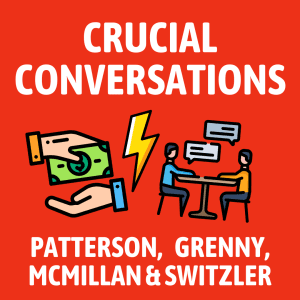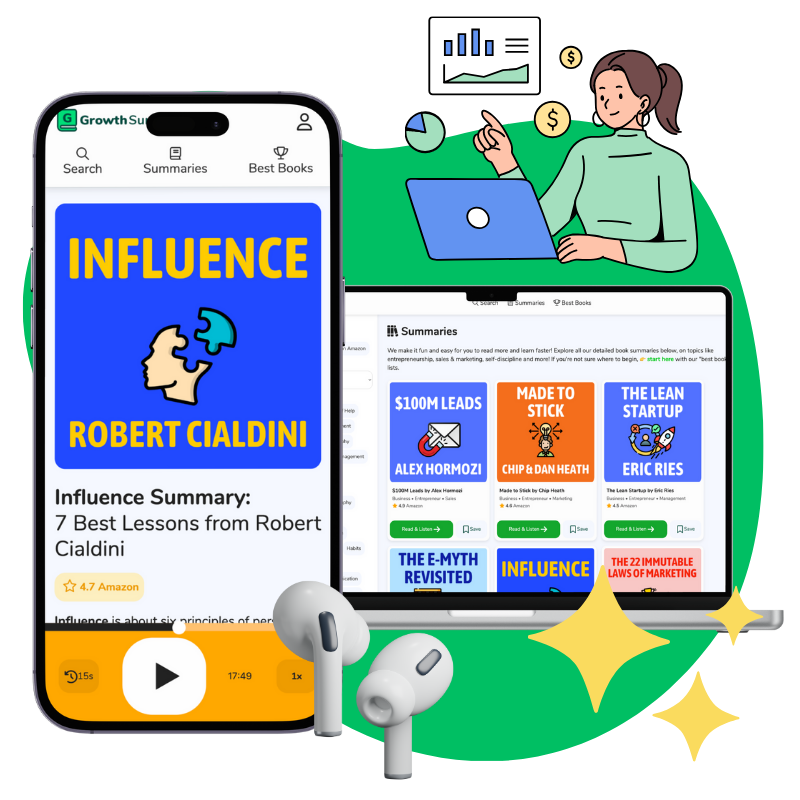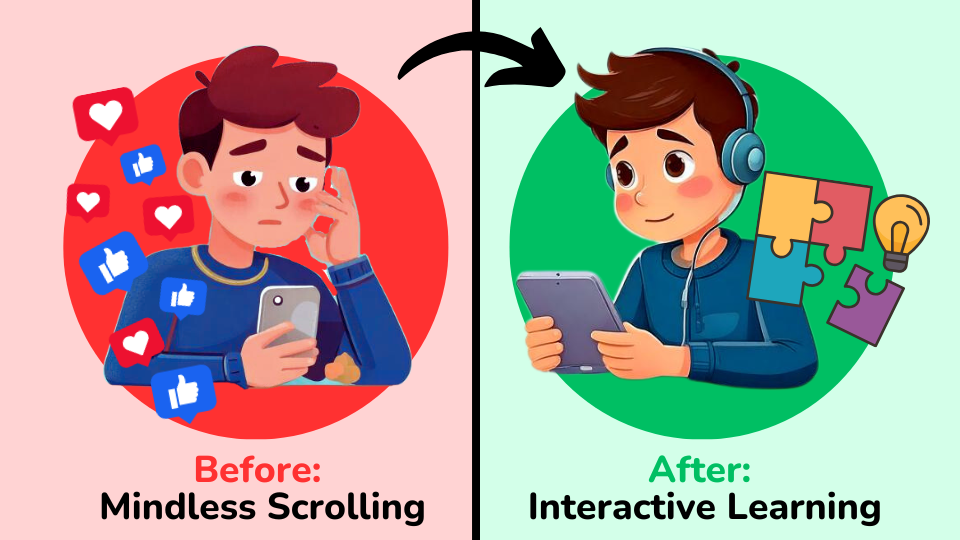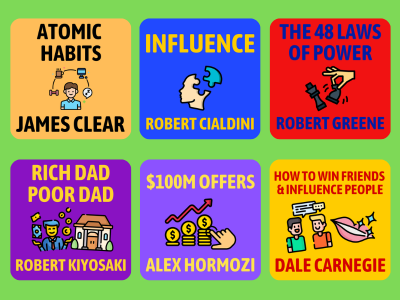We all want to get along better with our partner. Otherwise being at home will make us want to pull our hair out!
That probably explains why Men Are From Mars, Women Are From Venus was THE bestselling non-fiction book of the 90’s! (According to Publisher Weekly.) There’s no doubt it had a MASSIVE impact on our culture.
Why are modern relationships so often filled with friction and frustration, instead of harmony and agreement? John Gray says it’s because we’ve forgotten that men and women are different.
Men and women have different primary needs that must be met to feel loved in a relationship. When we expect our partner to be like us, that creates confusion, conflict and hurt.
But if we accept men and women have different primary needs, as if they dropped to Earth from different planet, then we can be more understanding and feel more love. Most importantly, we can work WITH our differences to build a relationship that works for everyone. The title “Men Are From Mars, Women Are From Venus” is a visual metaphor for that core idea.
“But isn’t this just about stereotypes that are sexist?” Looking at all the online reviews for this book, I can tell you that is THE major criticism of the book, especially by some younger readers. John Gray’s response is that 90% of men and women do have the commonalities he describes, but 10% of people won’t be able to relate. At the very least, I’d say the extraordinary popularity of this book proves that millions of men and women did connect with these particular stereotypes.
Who is John Gray?
John Gray (official site) is best known for writing this book. Men Are From Mars… sold over 15 million copies, which made him the bestselling relationship author of all time. He has over 35 years of experience in family and marriage counselling and has appeared on popular shows like Oprah and Dr. Oz.
👂 1. Give Women Understanding: Listen to understand her upset feelings, without trying to solve or explain them away
So let’s jump into the first stereotype! The book says…
Women are from Venus. On Venus sharing and relating with others is highly valued. Venusians get a sense of relief from connecting in relationships, so they are more likely to meet to simply talk and understand each other.
The problem is that men are from Mars, so they misunderstand this need and make mistakes:
- Men offer solutions or advice. On Mars, talking about a problem is usually directed towards finding a solution. So men make the mistake of offering solutions or advice to women, instead of simply listening. They don’t realize how rewarding it feels to Venusians to feel understood and connected.
- Men feel blamed or attacked. When she feels upset and talks about problems in her life, he may feel she is saying it’s his fault. She’s unhappy because he isn’t good enough at providing or taking care of her. This leads to…
- Men invalidate her feelings. He may try quickly “fixing” her upset feelings by logically explaining why she should not feel that way. Saying things like “it’s not so bad” or “you’re overreacting.” Psychologists may call this emotional invalidation. (GrowingSelf.com) It’s a mistake because what Venusians need is not for their problems to be minimized, but understanding.
For example, a woman may say “I never get to relax” to communicate she’s feeling exhausted. (Venusians often use dramatic language meant to express their feelings at this moment rather than an objective fact.) But her partner may feel she’s blaming him and argue logically her feelings are wrong: “You had a whole day off last week!” The much better response would be to give her understanding, by asking her more about what is making her feel tired or stressed.
Many men don’t realize women talk about problems simply to connect, not to blame him or find a solution.
Men can simply listen to their partner with patience, trying to understand why she feels that way. To help men learn that communicating is rewarding in itself for her, women can express appreciation after a man listens, especially after expressing upset feelings or complaining about problems.
This reminds me of another super-popular relationship book called The 5 Love Languages by Gary Chapman. The main idea in that book is people feel love in 5 different ways: words of affirmation, quality time, receiving gifts, acts of service, and physical touch. So to make someone feel loved, we must speak their primary love language.
I want to focus on one particular love language—quality time. That means giving our undivided attention, listening actively, with eye contact, making an effort to know and understand our partner. It seems the “Men Are From Mars…” book is saying women are more likely to have the love language of quality time.
Women get fulfillment and relief from simply sharing and relating with others. To feel loved, they need their partner to simply listen with the aim of understanding her, without offering advice or solutions. Or worse, logically explaining why she shouldn’t feel that way.
👍 2. Give Men Trust: Refrain from giving him unsolicited advice, direction, or criticism trying to improve him
Men are from Mars. On Mars, competence and personal ability are highly valued, so they are driven towards success and accomplishment. Solving problems on their own gives men a feeling of confidence, strength, and self-esteem, so they resist asking for help as a sign of weakness.
You’ve probably heard of Jordan Peterson, a psychology professor from Canada who skyrocketed to international fame after speaking out about current social and political issues. His message appears to be especially popular with young men.
So I find it interesting that a major idea he talks about is men’s particular drive towards status in the social hierarchy. He argues this tendency is not “socially constructed” like some academics claim, but goes down to fundamental biology and evolution.
Read more in our summary of 12 Rules for Life by Jordan Peterson
The problem is women are from Venus, they often don’t see how strong men’s need for personal competence is and make mistakes:
- Women offer too much help and empathy. If her partner is upset, she may ask lots of questions about what is wrong or what is bothering him. That is exactly how she would want to be supported. However, Martians feel she doesn’t trust him to solve the problem himself, the seeming lack of trust makes him feel unloved.
- Women undermine their partner’s confidence. She will offer directions about how he should do things, which may seem loving to her but make him feel less competent. Just like relating to others makes her feel good, doing things on his own successfully makes him feel good… Even if he could do it a little quicker or easier following her advice.
- Women feel abandoned. Men may become distant thinking about a problem or say “I’m fine” when clearly not. That disconnect doesn’t men they don’t care or love her, but they want to solve the problem on their own, rather than burden others with it.
According to the author Don Miguel Ruiz in The Four Agreements book, “Real love is accepting other people the way they are without trying to change them.” He later says the biggest mistaken assumption that we make in relationships is that our love will change someone.
Perhaps we can help someone close to us by providing encouragement or a positive example, but it is rare that real personal change comes from the outside. The only actions we can ever control in a relationship are our own, and maybe an essential part of love is accepting imperfection?
Men feel good doing things and solving problems on their own, because that reflects their personal competence. To feel loved, they need their partner to trust them in solving problems alone without offering too much empathy, advice or direction.
🎁 3. Give Women Support: Doing more small things for her each week keeps the relationship equal
In a relationship, women tend to give a lot unconditionally, but they become exhausted from so much giving. This is a common complaint in John Gray’s counselling practice. For women to be fulfilled in a relationship, they need care and support, the feeling their needs will be met.
Here are some quick pointers:
- Men can do many little things for her. Men often assume one big contribution to the household counts for dozens of small contributions. They may believe him working to pay the bills is equal to her doing all the cooking, cleaning, etc. But women tend to count one big thing equally to one little thing (like a loving note).
- Women emotionally “hit bottom” about once per month. Like an ocean wave, her emotions rise but also fall… and suddenly she feels hopeless, alone, and unable to radiate love. During this time of inner cleansing, they especially need to be heard and understood, then they will slowly rise back to normal. But many men mistakenly believe he can “fix” her mood once and for all by fixing what she is upset about.
- Women can practice asking for support more often. This can be scary because it makes us vulnerable to rejection, and she often feels unworthy to receive love. With men, it’s best to ask in a way that is short and direct “Would you do … ?” Men can be motivated to give more being shown appreciation, even for activities they have been doing for years.
If you’re reading this book, then you’d probably also be interested in the book Love & Respect by Emerson Eggerichs. He wrote, “When he honors her as first in importance and she respects him as first among equals, their marriage works.” What does that mean? I think it’s really the same basic message as the “Men Are From Mars…” book.
Making her “first in importance” means the husband makes her needs an urgent priority, by giving her understanding and support. Respecting him as “first among equals” means the wife shows trust towards her husband, by not trying to change or direct him.
Read more in Love & Respect by Emerson Eggerichs
In relationships, women often become exhausted from so much giving. To keep the relationship equal, men can learn she values a small contribution as much as a big one. He can expect her to regularly “hit bottom” emotionally, and offer more understanding during this time. Women can ask more often, not assuming he knows what support she needs.
🐺 4. Give Men Space: Men pull away to solve a problem on their own or balance intimacy with independence
Why do men pull away? It’s a question many women are frustrated by. Just as the relationship is becoming great, he withdraws attention to himself and his own interests. Or even years into a relationship, he may suddenly become distant and pull away from intimacy, making her feel uncared for and unloved.
Here are some real-world tips for how best to deal with this:
- Allow men to unwind by distraction. John Gray says after work, many men engage in an activity to release their attention from the stress of work. This may be the news, sports or light repetitive work. After some time, they will be ready to connect with others.
- Expect he will go into his “cave” once per month. Men also have a natural cycle, periodically needing to take care of himself independently. After some time, like a rubber band, he will again feel the need for intimacy and return to her on his own. Women can avoid chasing him into the cave or making him feel guilty for this need. (Chasing can take the form of asking many questions when he seems distant.)
- Men can give reassurance they will be back. If he feels the need to work something out on his own, such as the response to an argument, then he can tell her that he needs some time to think. Because she may misinterpret his temporary withdrawal as abandonment. Women are from Venus, so they are more likely to “work out their thoughts/feelings” out loud in conversation with loved ones.
I find it really interesting that many traditionally “masculine” activities like fixing a car or fishing involve long hours of repetitive solitary activity. They may have provided the ideal excuse for men who wanted to be on their own, take care themselves independently for a while.
I’m also reminded of video games, which were quickly popular among boys and young men. (I remember spending hours each week jumping around as Super Mario on the original Nintendo!) In some ways, video games could fill a similar need for repetitive solitary escape time. Today, women make up almost 50% of gamers, but a strong gender divide exists in what types of games they play. Over 90% of those who play sports, racing, or shooting games… are men.
Men pull away from their intimate relationship, so they can temporarily feel independent or work out a problem on their own. After some time, like a rubber band, they will come back on their own. Women can give him the right to space, mentally and physically, and avoid chasing him into his cave.
🤬 5. Beware Your Tone: Arguments happen more because of how we speak, than what we say
Avoid arguments, period. That is John Gray’s advice. But easier said than done, right?
Our tone of voice, he says, is mainly responsible for arguments starting and growing. We can communicate differing opinions and feelings without arguing, if our tone communicates care and respect.
There are two problems:
- Women’s tone can become disapproving, demanding, or resentful. This makes him feel unloved because it communicates the exact opposite of respect, acceptance and appreciation. Women can practice acceptance by treating him as the solution, not the problem that needs to be changed.
- Men’s tone can become sharp and mean, especially when they feel a challenge to their self. This makes her feel unloved because it communicates the exact opposite of understanding and caring. Men can practice caring by not making her feelings wrong, but understanding why she feels that way even if he disagrees.
Another blockbuster self-help book that changed the 90’s was The 7 Habits of Highly Effective People by Stephen Covey. That book says the most important key to personal relationships is to “Seek first to understand, then to be understood.”
What does that mean, exactly? Most of us try only “to be understood” without truly listening. Imagine a child who doesn’t want to do some after school program, but their parent barely listens to their reasons before saying counter arguments why they should want to do it. This is more about what our intention or goal is, rather than any listening technique, because people can feel our deeper intention. Is our goal to understand them, or is our goal to control and manipulate? They can feel the difference.
Listen closely because after reading hundreds of books, here is one of the most important things I’ve learned from ANY book: In order to influence another person, we must risk being influenced ourselves. That’s right. It is risky to listen with the goal of truly understanding someone else’s perspective… because it is OUR MIND that may be changed! Perhaps that is why most people are so reluctant to open up in that way.
Learn more in our summary of The 7 Habits of Highly Effective People
Arguments happen more because of our voice tone, than what we say. We can discuss differences of opinion in a caring and respectful way. Men can avoid a sharp and mean tone. Women can avoid a disapproving or demanding tone.
💌 6. Write Love Letters: Communicating difficult feelings is easier through a letter
When we feel hurt, resentful or frustrated, then it becomes difficult to communicate in a loving way. We become more likely to say hurtful things impulsively that we later regret. Therefore, John Gray advises partners write letters to each other following a specific formula:
- Write a love letter. There should be 5 short paragraphs, one for each emotion of anger, sad, fear, regret, love. You can literally begin each one with “I feel angry/sad/etc…” It’s important to talk about all of these emotions in order to really express what we are feeling. Ending with love allows us to reassure our partner that although we have a disagreement, we love them.
- Write a response letter. What would you like for them to say to you? This can teach our partner what we really need from them. For example, remember that men often talk about solutions rather than offering the understanding their partner needs.
- Share your letters with your partner.
I want to reflect on this last exercise in the book. Many readers may dismiss writing letters because it sounds too slow or awkward. They may think, “Why not just tell my partner how you feel to their face?” But many of us don’t realize the surprisingly powerful psychology behind this technique…
There was a recent bestselling book on the psychology of trauma called The Body Keeps The Score by Bessel van der Kolk. It says, “Being able to feel safe with other people is probably the single most important aspect of mental health; safe connections are fundamental to meaningful and satisfying lives.”
The problem is that when we feel strong emotions like fear or anger, there is an intense biological reaction happening in the part of our brain called the amygdala. It becomes very difficult to communicate well because part of our brain is ringing alarm bells, also known as “the fight or flight response.”
But we can regain control through “top down regulation,” which means activating another part of our brain called the prefrontal cortex, which has to do with long-term thinking and planning. How? Well, one way is by writing down in a journal what we’re thinking and feeling, a technique used in many mental health therapies. I believe similar science is at work in John Gray’s ‘love letters.’
When we feel strong emotions of hurt, fear or anger, then it’s very difficult to communicate lovingly. That is why John Gray recommends writing a ‘love letter’ to explain how you feel anger, sadness, fear, regret, and finally love. Then write a letter about how you want them to respond, and share both letters with your partner.
- Practice listening for 15 minutes each day for one week. That means giving your partner undivided attention, asking questions with the goal of understanding them better. Listening to upset feelings, without offering advice about how to solve their problem.
- Offer appreciation for 5 regular everyday things. For example, if your partner does listen to you talking about upset feelings or problems, you can say thank you. This lets them know you get fulfillment from talking itself, you’re not blaming them or asking for advice.
- Ask your partner whether they’d prefer space OR concern, the next time they look upset. John Gray says men need to be trusted to work things our on their own, so they may actually want less empathy. On the other hand, he says women need care and understanding, so they likely prefer their partner to be more assertive asking “what’s wrong?”
(That is basically the core message of the entire book: We should not assume that our partner wants exactly what we would want!)



















Community Notes